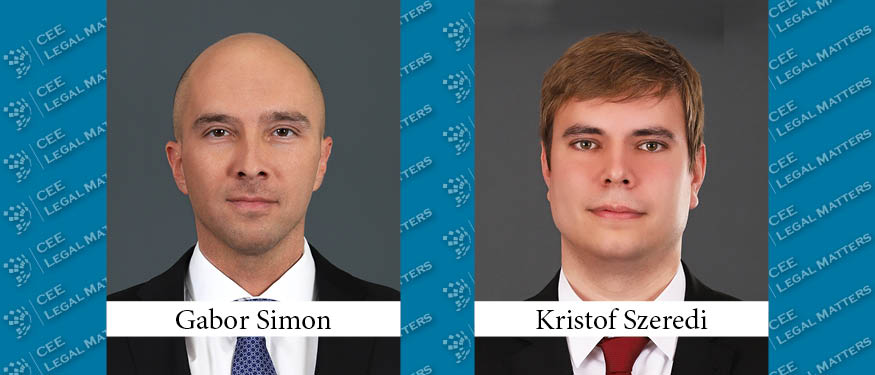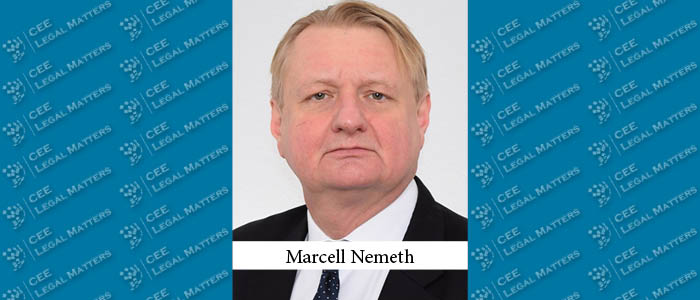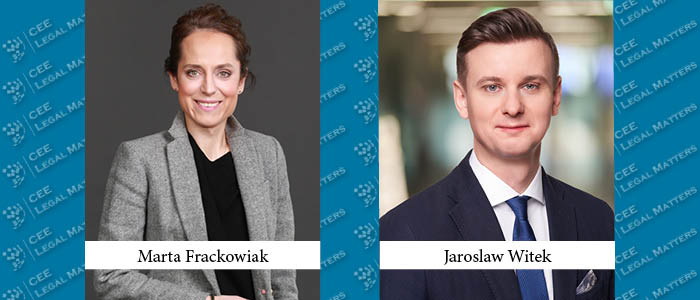DLA Piper has advised Greek flag carrier Aegean Airlines on the sale of charter operator Animawings to Christian Tour Holding.
DLA Piper Advises Porr AG on EUR 135 Million Issuance
DLA Piper has advised Porr AG on its EUR 135 million hybrid bond issuance.
Did You Know: The 2023 Lawyer and Firm Leaderboard in Romania
Did you know that, according to the Activity Rankings function of the CEELMDirect website, a total of twenty law firms and seventeen individual lawyers worked on five or more reported Romanian client matters in 2023?
Did You Know: Topping the 2023 Charts in Poland
Continuing our review of 2023, did you know that a total of twelve lawyers worked on seven or more reported client matters in Poland in 2023 – a step up from the ten lawyers who worked on that many in 2022? The 2023 partner leaderboard was led by Tomasz Rogalski of Norton Rose Fulbright, who worked on a market-leading 15. Clifford Chance’s Andrzej Stosio, whose 11 reported deals in 2022 led the market, repeated that number in 2023, tying him for second place with White & Case’s Marcin Studniarek.
Legislative Changes Supporting the Restart of Wind Power Development
Since the beginning of the year, the Government has modified the previous legal environment concerning the development of wind power plants in several areas to increase wind power capacity. According to the Ministry of Energy's communication so far, wind power capacity is expected to increase to around 1,000 MW by 2030.
DLA Piper and Marszalek & Partnerzy Advise on Corsair Capital Acquisition of MJM Holdings
DLA Piper, working with Slaughter and May, has advised Corsair Capital on the acquisition of MJM Holdings and the related financing. Marszalek & Partnerzy, working with sole practitioner Szymon Skiendzielewski, advised the MJM Holdings shareholders.
Crido and DLA Piper Advise Duna Aszfalt on Acquisition of Mota Engil Central Europe
Crido has advised Duna Aszfalt on its acquisition of Mota Engil Central Europe. DLA Piper advised the sellers. Cerha Hempel reportedly advised Duna Aszfalt as well.
DLA Piper Advises OX2 on Construction of Wind Farms in Poland
DLA Piper has advised OX2 on the construction of the Juniewicze, Grajewo, and Sulmierzyce wind farms with a total capacity of over 100 megawatts.
DLA Piper Advises Generali CEE on Acquisition of 4Life Direct Poland from 4Life Direct International
DLA Piper has advised Generali CEE Holding on its full acquisition of 4Life Direct Poland from 4Life Direct International. CMS reportedly advised 4Life Direct International.
The Corner Office: Budget, Budget, Budget
In The Corner Office, we ask Managing Partners at law firms across Central and Eastern Europe about their backgrounds, strategies, and responsibilities. With 2023 marching to an end, we looked ahead and asked about strategies for next year: As the budgeting period is around the corner, compared to 2023, what are the main budgeting lines you expect to increase for 2024 and why?
Wolf Theiss and DLA Piper Advise on DRIM Daniel FMCG Sale to Zabka Polska
Wolf Theiss has advised the shareholders of Romania's DRIM Daniel FMCG on the sale of their majority stake in the company to Polish retail company Zabka, part of CVC Capital Partners. DLA Piper advised buyer Zabka Polska.
DLA Piper Advises TMF Group on Acquisition of Contexpert
DLA Piper has advised the TMF Group on its acquisition of Contexpert, an accounting, inventory, taxation, and payroll services specialist in Romania.
Marcell Nemeth Joins DLA Piper as Partner in Vienna
Former Wolf Theiss Partner Marcell Nemeth has joined DLA Piper’s Finance, Projects & Restructuring practice as a Partner in the firm's Vienna office.
DLA Piper Advises International Personal Finance on PLN 72 Million Note Issuance
DLA Piper has advised International Personal Finance on the successful PLN 72 million issuance and settlement of senior unsecured floating-rate notes under the IPF’s EUR 1 billion medium-term note program.
MFW Fialek and DLA Piper Advise on Solita's Takeover of Future Mind
MFW Fialek has advised Solita on its investment in and integration of Future Mind. DLA Piper advised Future Mind.
Poland: Rethinking Defense
In the wake of Russia’s invasion of Ukraine in February 2022, Poland has found itself at the forefront of NATO’s eastern flank, sharing a border with a country embroiled in a full-scale war. DLA Piper Partner Marta Frackowiak and Dentons Partner Jaroslaw Witek talk about how this geopolitical reality has prompted a significant shift in Poland’s defense strategy.
DLA Piper Advises Washington Dental Service on Acquisition of 50% Stake in Software Developer 8 West Consulting
DLA Piper has advised Seattle-based Washington Dental Service on its acquisition of a 50% stake in 8 West Consulting.
Dentons and DLA Piper Advise on Globalworth EUR 145 Million Financing from Aareal Bank
Dentons has advised Globalworth on the EUR 145 million financing from Germany's Aareal Bank AG to refinance its obligations regarding the Skylight and Lumen office complex and the Hala Koszyki multifunctional facility in Warsaw. DLA Piper advised Aareal Bank.


















